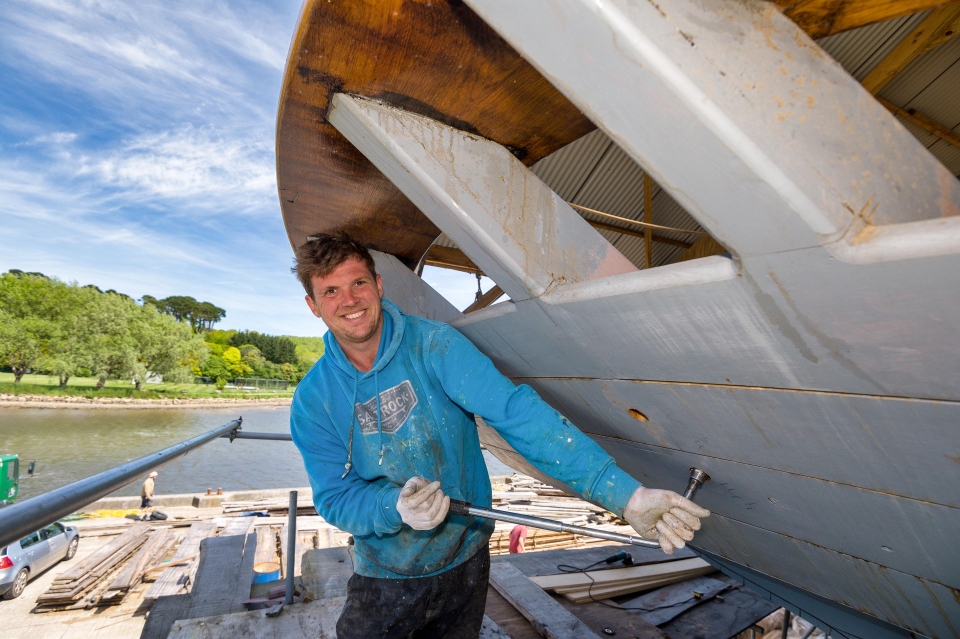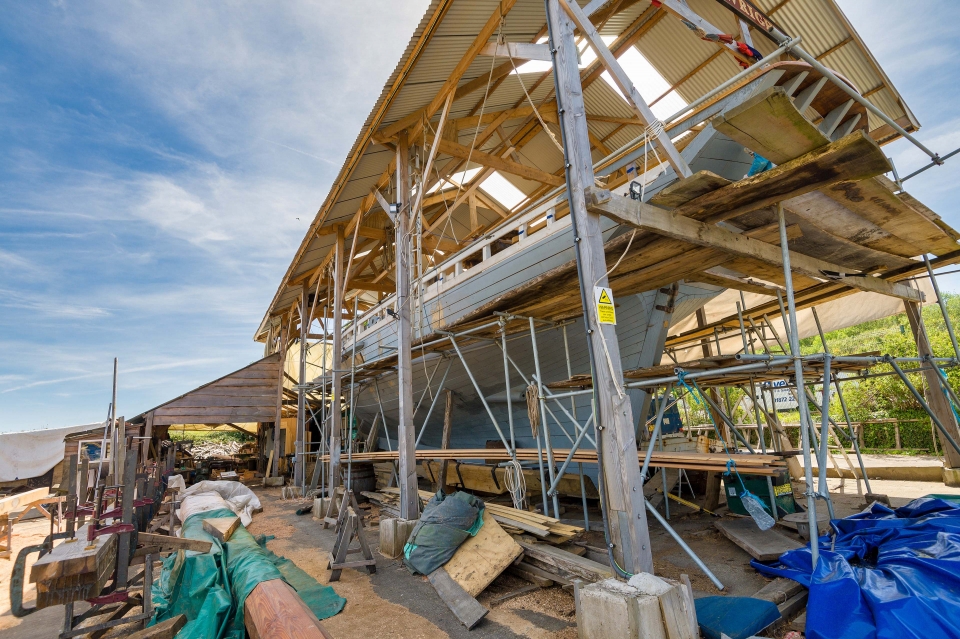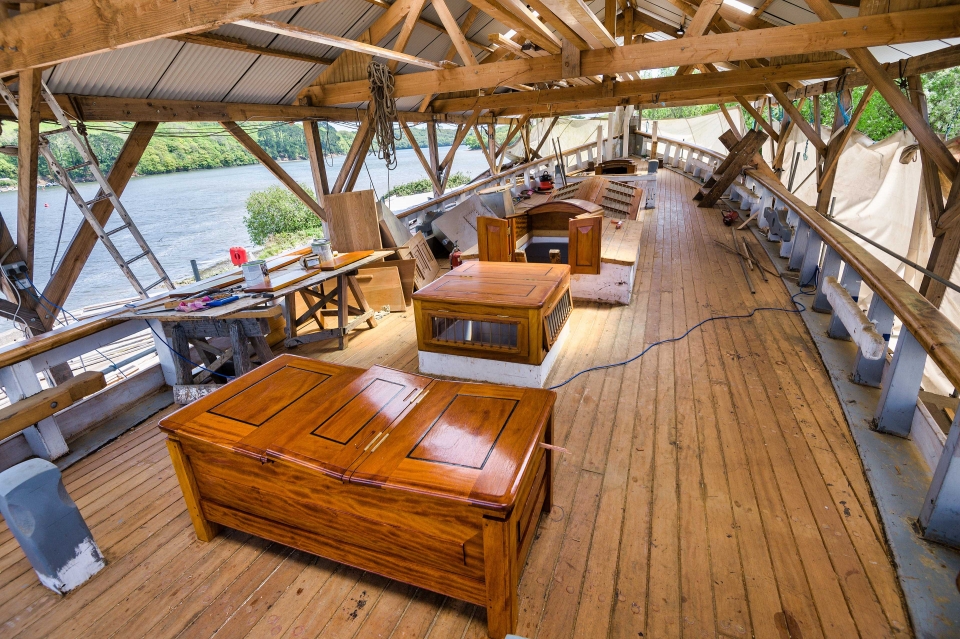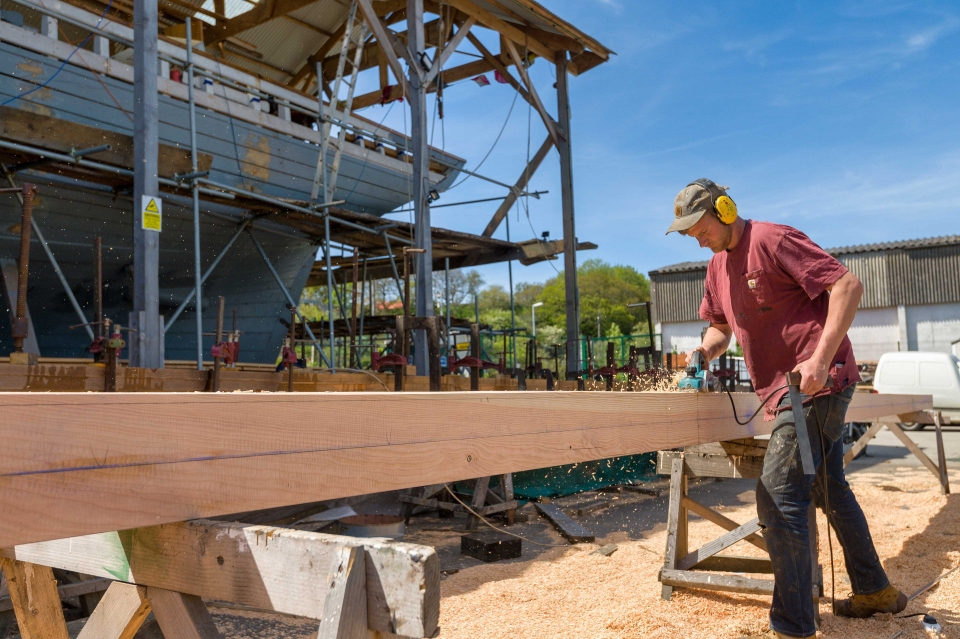Update on the Rhoda Mary Shipyard at Newham
Friday 21st June, 2019

When you visit the Rhoda Mary Shipyard at Newham, you come face to face with a seafaring time machine. Aboard the solid oak hull of a traditional Cornish boat is a group of experienced shipwrights sharing and teaching keen apprentices the art of wooden boat building and seafaring techniques.
Spearheading the project, Luke Powell has a wealth of seafaring knowledge, having already built eight cutters as well as restoring Thames sailing barges and wooden fishing boats. He explained the importance of this latest build, for the sailing community as well as those involved in it locally.
"In the next month we need to take on two or three more apprentices and we’ll train these up to become shipwrights," he said. "It is fantastic to see people coming through and learning all of these traditional skills. They will remember working on this project for the rest of their lives. And by learning all of these skills and techniques, the apprentices can go on and secure more work in the sector. The knowledge they learn here will be invaluable for their future."
The aim of the exciting programme of work at Newham is to faithfully recreate one of the longest serving and best documented of the Cornish cutters, the Vincent, a vessel built in 1852 for the Vincent family in St Mawes.

"Boats like this are outside living memory, nothing like this has been built for 100 years,” said Luke. “We really want to share with people how to use and benefit from her so she will be a great training tool for future shipwrights and seafarers."
The mast of the cutter is currently being finished and the ship is due to leave land and take its first sail on the water around Newham in February 2020. But once in the water, the vessel’s work will have only just begun. It will be used to help train new apprentices in how to sail and maintain a cutter while also welcoming paying passengers for exciting chartered voyages on this unique vessel.
"At the moment, the cutter is just an object but when she goes in the water, she becomes a creature rather than a machine,” said Luke. "Your relationship with the vessel changes, it is like having a part of nature moving and powering through the water."
And this labour of love highlights the passion Luke and the team have for reinvigorating the memory of these cutters and the tools used to create them.
"We are two years into the project and it is very exciting," he said. "I am in that bubble when it is always on my mind, I think about this cutter 24/7."

Following sea trials, the Newham-based cutter will also be put through her paces as part of a flotilla of vessels racing to the Azores with everyone involved in building her invited to join the sail.
"It is going to be a really competitive race and even though it is a big boat, I know it is going to go very fast, she is powerful,” said Luke. “I do wonder how we are going to control her when the wind blows.”
Seafaring fans have been watching the cutter take shape over the months. The team also shared a video showing enthusiasts how the build is developing, which has already been viewed more than 8,000 times."The interest on social media has been amazing," said Luke. “It just shows how the project has really captured people’s imaginations. We have lots of people keeping up to date with our progress online and we also have people popping along to see us here at Newham so they can take a look at the cutter as she takes shape.

"The Rhoda Mary Shipyard gives us an insight into the past. Stepping on board this cutter is like stepping back in time."
Brian Pain, the owner of the Thames Barge Lady of the Lea, has been working for some years with the Faversham Creek Trust and shipwright Simon Grillet to develop a boatbuilding training platform. Now, Brian has branched into Cornwall and has formed the Falmouth Pilot Cutter CIC with Luke and wife Joanna at the helm.
And the vessel is hopefully just the beginning of Newham’s modern connection to Cornwall’s traditional cutters. Luke explained that there are hopes more will be built at the yard in the future with aims to keep training future generations in the art of traditional shipbuilding.
When complete, the cutter will be named Pellew in honour of local hero Edward Pellew, famed as a great British frigate captain during the Napoleonic wars.

